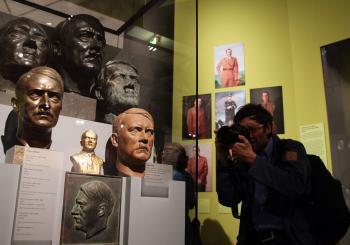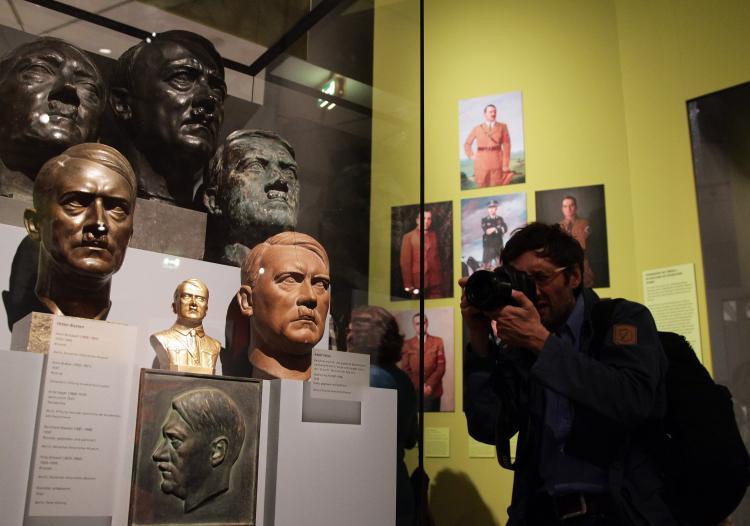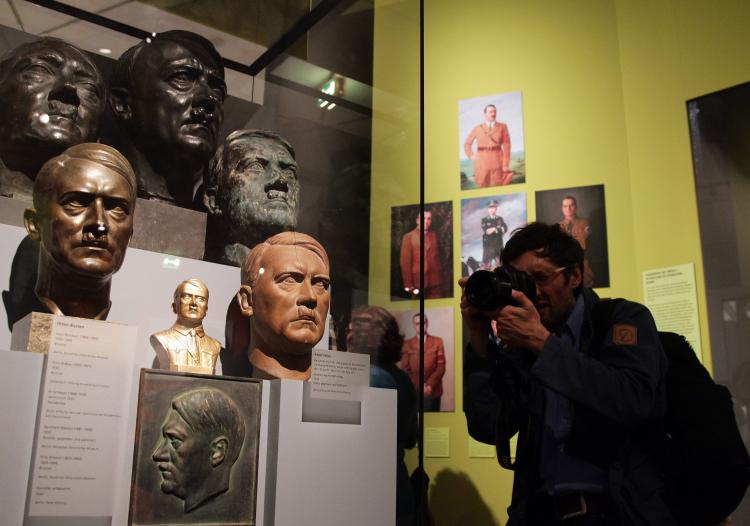A Hitler exhibition at Berlin’s German Historical Museum that opened on Wednesday explores how Adolf Hitler rose to popularity in Germany and came to power.
The exhibit, titled “Hitler and the Germans—Nation and Crime,” doesn’t seek to look at Hitler as a person—and thus has no personal items that belonged to the dictator—but aims to show, using artifacts of the time, how the German people supported him and his regime.
Hans Ottomeyer, the head of the museum hosting the exhibit, said, “It tries to portray how Hitler grew out of the politics of his time, the mental state and fears, what methods he used and where that led, always in a dialogue of pictures and counter-pictures,” reported the AP.
Typically, things relating to Germany’s Nazi period are taboo in the nation, but the last few years have seen more people approaching the topic in film, plays, or exhibits. However, Ottomeyer said that displaying Hitler is still “delicate."
Exhibits of this sort reveal that “the persecution of political opponents, the persecution of Jewish fellow citizens, the deportation of Jewish citizens took place in front of everyone’s eyes,” said Hans-Ulrich Thamer, a history professor at the University of Muenster, in an AP report.
The exhibit, titled “Hitler and the Germans—Nation and Crime,” doesn’t seek to look at Hitler as a person—and thus has no personal items that belonged to the dictator—but aims to show, using artifacts of the time, how the German people supported him and his regime.
Hans Ottomeyer, the head of the museum hosting the exhibit, said, “It tries to portray how Hitler grew out of the politics of his time, the mental state and fears, what methods he used and where that led, always in a dialogue of pictures and counter-pictures,” reported the AP.
Typically, things relating to Germany’s Nazi period are taboo in the nation, but the last few years have seen more people approaching the topic in film, plays, or exhibits. However, Ottomeyer said that displaying Hitler is still “delicate."
Exhibits of this sort reveal that “the persecution of political opponents, the persecution of Jewish fellow citizens, the deportation of Jewish citizens took place in front of everyone’s eyes,” said Hans-Ulrich Thamer, a history professor at the University of Muenster, in an AP report.






